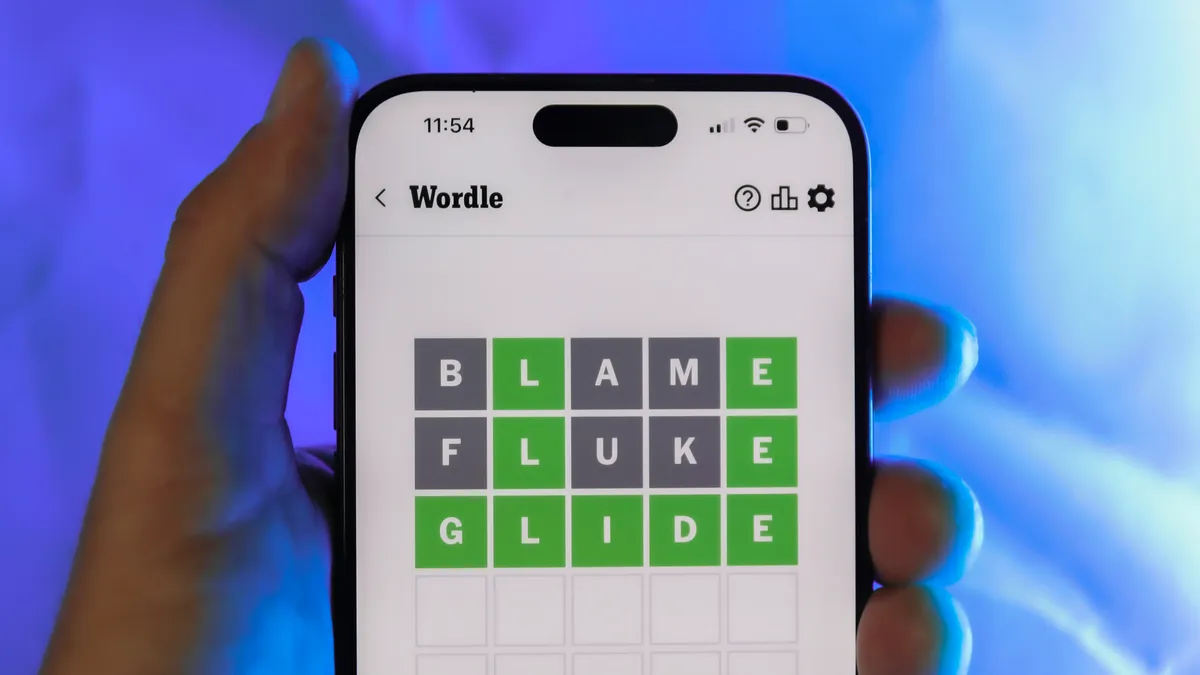Wordle Help: Ultimate Guide to Winning Every Puzzle Like a Pro
Wordle has become one of the most popular online word games in the world. Every day, millions of players open their browsers or phones to face a simple yet challenging task: guess a five-letter word in six tries. Sounds easy, right? But once you start playing, you quickly realize how tricky Wordle can be. That’s where Wordle help comes in. Whether you’re a beginner or a seasoned player, having the right strategy can make all the difference between guessing the word correctly and missing it by one letter. This guide is designed to give you everything you need to know about improving your Wordle skills. From smart opening guesses and pattern recognition to advanced solving techniques, we’ll cover it all. By the end of this article, you’ll have the tools to approach each Wordle puzzle with confidence and consistency.
What Is Wordle and How Does It Work?
Wordle is a daily word puzzle game that challenges you to find a hidden five-letter word within six guesses. After each guess, the game provides feedback in three colors:
🟩 Green means the letter is correct and in the right position.
🟨 Yellow means the letter exists in the word but is in the wrong position.
⬜ Gray means the letter isn’t in the word at all.
This simple color-coded system is what makes Wordle so addictive. Every new color clue brings you one step closer to cracking the daily mystery.
Why Players Look for Wordle Help
Even though Wordle seems easy at first, players often hit a wall after a few guesses. Maybe you start strong with a good opening word, but then the hints get confusing. Maybe you guess a word that looks perfect but ends up being wrong. This is where Wordle help comes in. It’s not cheating—it’s strategy. Learning the right techniques can transform your guessing process and boost your success rate dramatically. Players use Wordle help to:
- Develop a consistent starting strategy
- Learn how to analyze color feedback efficiently
- Avoid wasting guesses on wrong letter combinations
- Understand common word patterns
- Expand their vocabulary for future puzzles
The Importance of a Strong Starting Word
Your first guess in Wordle can set the tone for the entire game. Starting with the right word helps you uncover useful letter patterns early on. Experts recommend using words that contain a mix of common consonants and vowels.
Best Starting Words for Wordle
- CRANE – Balanced between vowels and frequent consonants.
- SLATE – Great for identifying common letters like A, L, and T.
- AUDIO – Helps reveal key vowels quickly.
- SOARE – A word that statistically uncovers strong clues early.
- TRACE – Efficient for narrowing down letter positions.
Words to Avoid as Starters
Avoid rare or repetitive letters such as X, Q, Z, or words with double letters early on. Those are better tested later in the game when you have partial feedback.
Understanding Wordle Patterns and Letter Frequency
One of the best forms of Wordle help comes from understanding letter frequency in English. Common letters like E, A, R, O, T, N, S, L appear more often in five-letter words. If you prioritize these in your early guesses, you’ll uncover useful patterns faster. English words also follow certain predictable structures. Recognizing these can give you a major advantage:
- Words ending in -ER, -ED, -LY, or -ING are frequent.
- Combinations like TH, CH, SH, ST, and CL often occur together.
By observing these trends, you can narrow down potential answers and make more educated guesses instead of random ones.
Step-by-Step Wordle Help Strategy
Step 1: Start with a Balanced Word
Pick a starting word that has multiple vowels and common consonants.
Step 2: Analyze the Feedback
After your first guess, focus on what the color feedback tells you. Keep greens fixed, move yellows to new spots, and eliminate gray letters completely.
Step 3: Build Around Confirmed Letters
Use the feedback to form possible patterns. For example, if you know the word contains “A” and “T” but not “R,” experiment with combinations like “PLANT” or “COAST.”
Step 4: Avoid Redundant Guesses
Never reuse letters that are already confirmed as gray. Each guess should add new information to your puzzle.
Step 5: Think About Word Structure
Many English words follow similar rhythm patterns. Think about vowel placement and sound flow. This often helps when you’re stuck with only a few letters left.
Common Mistakes Players Make
- Ignoring feedback – Guessing words without using previous clues wastes turns.
- Repeating eliminated letters – This adds no new data and reduces your winning chances.
- Guessing rare words too early – Save obscure or double-letter words for later.
- Overusing vowels – A balanced mix works better than vowel-heavy guesses.
Advanced Wordle Help Techniques
Once you’ve mastered the basics, these advanced strategies can help refine your gameplay even further.
Use Positional Probability
Certain letters appear more often in specific positions. For example, E and Y often appear at the end of a word, while S frequently begins one.
Track Word Families
When you have several known letters, think of all possible combinations. For example, if you know the letters “A,” “N,” and “T” are present, possible words include “PLANT,” “CHANT,” and “GIANT.”
Consider Double Letters
Words like “BEEFY,” “OFFER,” and “SHEEP” include repeated letters. Players often overlook this, assuming letters only appear once.
Use Elimination Wisely
Every wrong guess brings you closer to the answer if you eliminate efficiently. Each turn should add new information, even when you’re not correct.
Helpful Tools and Resources for Wordle Help
While part of the fun of Wordle is solving it yourself, a few online tools can guide your practice.
Wordle Solver Tools
Sites like WordFinder, WordHippo, and Lexico can help you check possible word options based on the letters you already know.
Vocabulary Builders
Expanding your vocabulary is an underrated Wordle advantage. The more five-letter words you know, the faster you’ll recognize potential answers.
Community Tips
Join Reddit threads or Wordle communities where players share daily hints and discuss strategies. Seeing how others approach the same puzzle can sharpen your skills.
How to Handle Difficult Wordles
Not every puzzle will be straightforward. Some days feature rare words that stump even experienced players.
When You See Repeated Letters
Double letters can throw players off. Always consider possibilities like “SHEEP,” “FLUFF,” or “BLOOM.”
When Vowels Are Hidden
Some words like “CRYPT” or “PSALM” hide vowels creatively. Don’t be afraid to guess unusual patterns once you’re down to the last few turns.
When All Else Fails
If you’re truly stuck, take a short break and come back. A fresh look often helps your brain see patterns you missed before.
Wordle Help for Different Skill Levels
Beginners
Focus on learning letter frequency, feedback color logic, and avoiding repeated mistakes.
Intermediate Players
Experiment with different starting words, pay attention to word endings, and practice predicting letter positions.
Advanced Players
Use deep pattern recognition, memorize rare five-letter words, and perfect your guess efficiency to solve in fewer than four tries.
Expanding Beyond Classic Wordle
If you’ve mastered Wordle and want a bigger challenge, try these variations:
- Quordle: Solve four Wordles at once.
- Octordle: Solve eight puzzles simultaneously.
- Heardle: Guess the song from audio clips.
- Worldle: Identify countries by their shapes.
- Nerdle: A math version for number lovers.
These spin-offs train your brain in new ways while keeping the addictive spirit of Wordle alive.
Psychological Benefits of Playing Wordle
Wordle isn’t just a fun pastime—it also sharpens mental skills. Regularly solving puzzles improves pattern recognition, memory, and problem-solving speed. It offers a quick brain workout that keeps you sharp without feeling like a chore. The sense of accomplishment when you get the word right releases dopamine, giving you a positive start to your day.
Frequently Asked Questions About Wordle Help
1. What is Wordle Help?
It’s a set of strategies and tools to make your Wordle-solving faster and more accurate.
2. Does using Wordle Help mean cheating?
No. It means playing smarter and understanding word logic better.
3. How do I improve quickly?
Play daily, use strong starting words, and review each loss to see what went wrong.
4. Are there official hints?
No official hints, but many websites and forums provide daily clues.
5. What is a good Wordle streak?
Many players aim for 30+ wins in a row. Consistency is key.
6. How many total Wordle words exist?
There are roughly 2,300 official answers in the Wordle database.
7. What’s the hardest Wordle ever?
Words like “PARER,” “KNOLL,” and “WATCH” have confused many players.
8. Can I play old Wordles?
Yes, several websites archive previous puzzles for practice.
9. Is Wordle available in other languages?
Yes, there are versions in Spanish, French, German, and more.
10. Does Wordle improve vocabulary?
Absolutely. It introduces new words daily and helps with spelling and logic.
Final Thoughts
Wordle has proven that a simple concept can captivate millions worldwide. Whether you’re playing casually or chasing a long streak, understanding how the game works is key to success. The beauty of Wordle lies in its balance—simple enough for anyone to play but challenging enough to keep you hooked. With the strategies in this Wordle help guide, you’ll start recognizing patterns faster, eliminate wrong guesses efficiently, and approach every daily puzzle with a winning mindset. The next time those green tiles start appearing on your screen, you’ll know it’s not luck—it’s strategy.






